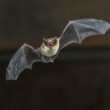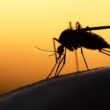We often get asked “Do coffee grounds keep deer away?” by homeowners who are sick of these animals damaging parts of their yard. The reason this question gets asked so frequently is that it’s been a popular recommended method for years.
But is it just an old wives’ tale?
In the guide below, we look into how effective using coffee grounds to repel deer really is. The answer might surprise you!
Table of contents
Do Coffee Grounds Keep Deer Away?
Despite their gentle and skittish nature, deer can cause a lot of trouble in your backyard. They can ruin gardens, mar trees, and leave behind a wake of destruction on your perfectly manicured lawn. For this reason, many homeowners turn to old-school tricks to keep them out.
One of the most popular is spreading coffee grounds. But does spent coffee actually do anything?
The truth is that no scientific research indicates that coffee grounds keep deer away. There’s not much support from the science community in this matter.
That said, some people swear by it! Ultimately, the efficiency of coffee grounds for keeping deer away depends on individual deer and their unique tolerances.
The basis behind the coffee ground technique comes down to smell. Deer have a surprisingly strong sense of smell, which they use to find accessible and healthy food sources. Like dealing with other pests, you can use those robust olfactory glands against them.
Many believe that the acidic and bitter smell that comes from spent coffee grounds is enough to turn deer away. The thought is that the aroma indicates the presence of humans or other would-be predators, so they avoid the area to stay safe.
Now, whether or not all that is true is still up for debate. There are no guarantees that coffee grounds will work when it comes to repelling deer, but some people have experienced great success.
So should you try it? It’s worth a shot!
Coffee grounds are all-natural. They have no chemicals and won’t cause harm to your garden. In fact, coffee could improve the soil’s health over time.
As a natural material, coffee decays over time. The decaying matter is like compost, enriching the soil with essential nutrients.
Additionally, coffee’s acidity can enhance the soil’s pH balance. It subtly boosts nitrogen levels. The change isn’t extreme enough to cause trouble to the existing plants in the vicinity. However, it can improve overall fertility.
With time, the coffee grounds will increase the soil’s capability to absorb water, too. As a result, plants can stay hydrated for much longer.
As if the soil benefits weren’t enough of a reason to try it as a deer deterrent, coffee grounds are proven to keep other pests away! Despite the lack of scientific evidence concerning deer, there’s plenty of research to support its effects on other bugs.
It’s most effective against slugs, snails, and ants. Some evidence suggests that wasps, bees, and even mosquitos hate the stuff!
Quick Tip: Even if you’re not sold on using coffee grounds to keep deer away, there’s no harm in using coffee grounds. There are no downsides, and you might experience perks elsewhere. It’s certainly worth trying out to see how your local deer react.
The Best Ways To Use Coffee Grounds To Repel Deer
There are a few different ways to try and use coffee grounds to repel deer. While there’s no scientific backing to this deterrent method, most people rely on the pungent smell to work its magic.
Here are some ways to harness that signature smell.
Directly From The Coffee Maker
Here’s the easiest way to use coffee grounds for keeping deer away. If you’re like most people, you probably brew up a pot every morning to start your day. Instead of tossing those spent grounds, move them directly to the dumping site!
Coffee grounds continue to decay as time goes on, so the smell doesn’t last forever. But if you do this every single day, you can maintain a potential scent barrier year-round.
After brewing, the coffee is at its freshest. The oils are still swimming in the spent grounds, leaving behind a pretty potent mix. It’s at its freshest, so it should have a decent impact on the soil and nearby pests.
Hot Brews Only
Are you a fan of cold-brew coffee? While cold-brewing still has some slight acidity, it’s best to stick to hot coffee only.
When you brew a pot of hot coffee, you’re pulling more of those acidic oils. The process extracts more caffeine and flavor, too. The goal is to create the most powerful solution possible for keeping deer away, so stick to hot coffee.
Short-Term Storage
If potency is what you’re after, storing the coffee grounds for a few days is the way to go! Rather than going from the coffee maker to the yard, keep an airtight container or bag in your kitchen for storage.
Gather coffee grounds for about a week before dispersing them in your yard. The coffee will become more pungent to deer as the days go on, resulting in a super-smelly mixture that deer won’t miss! Be prepared for that wave of aroma every day.
It’ll get more powerful as you near the end of the week. You may even notice a touch of fermentation occurring. Don’t worry! That added element only enhances the grounds more.
Try not to store spent coffee grounds for more than a week. There’s always a risk that the coffee will develop mold, which opens up more issues than you want to tackle. A week’s worth of collecting is a happy middle ground.
Creating A Scent Barrier
Whether you go the daily route or the weekly one, choosing where you put the coffee grounds is critical. They should be dispersed in areas where deer will roam. However, it’s important to avoid putting them in places that could cause damage.
Quick Tip: Remember, coffee will change the pH level of the soil. As a result, avoid putting them onto plants and trees directly.
Instead, try spreading the grounds near your plants to create a scent barrier that keeps deer away. It’ll act like an invisible fence that, hopefully, stops deer from moving any further into your yard.
Are Certain Coffee Grounds Better Than Others?
There’s not much of a difference between coffee brands or types. It doesn’t matter whether you brew the cheap stuff or soak in the morning sun while sipping premium gourmet beans. It all has the same smell in the end.
Theoretically, a dark roast would be a better choice. Dark roast coffee beans are cooked for much longer, leading to more acidity when brewed. We can assume that dark roast coffee grounds would create a more robust solution for deterring deer.
But once again, there’s not much evidence to back up the claim that dark roast coffee grounds repel deer more than any other.
The same goes for freshly ground over pre-ground beans. Some argue that using a grinder just before brewing preserves more of the flavor. That might be true for the coffee connoisseur, but it doesn’t seem to make a massive difference when using the grounds for keeping deer out.
Quick Tip: The most crucial factor to pay attention to is how you brew the coffee. As mentioned earlier, hot brews are better than cold ones. The heat pulls out more oils, resulting in a more intense aroma.
Alternatives To Coffee Grounds For Keeping Deer Away
While you can use coffee grounds to repel deer, there are no guarantees when it comes to its effectiveness. Sure, it’s a cheap and easy solution. However, those looking for reliable results might want to try one of the following alternatives.
These deer-repelling techniques are tried and true. They’re more likely to help you see the results you’re looking to achieve.
Granular Repellent
You can’t go wrong with commercial deer repellents.
Granular products are actually very similar to coffee grounds when it comes to how they keep deer away (but they’re more effective). They’re dry, easy to spread, and don’t have any of the difficulties that come with sprays. All you have to do is pop on some gloves and start dispersing!
Now, take one look through the market, and you’ll find several different types of granular repellents. Some of the best options are all-natural.
Granular repellents can use a wide range of chemicals to keep deer out. While effective, they’re not necessarily the safest thing to spread throughout your garden and lawn. With all-natural options, those worries don’t exist.
Just like using coffee grounds to repel deer, natural granules are safe to use around plants. You want to pour them directly onto your garden bed, but you can safely sprinkle them nearby.
The granules break down over time, producing scent warnings that deer can’t help but notice. What do these repellents smell like?
To us humans, they’re virtually undetectable. The smell is hormone-based, making it a subtle marker that won’t affect your outdoor enjoyment. It’s intense for deer and is said to replicate the scents of would-be predators.
The granules are enough of a warning to keep most deer out. Best of all, these types of repellents are long-lasting. The best non-toxic formulas can last a month or more.
While they can be more costly than coffee grounds, you’ll have a lot more time between reapplications.
Sprays
If using coffee grounds to keep deer away doesn’t appeal to you, you can try a liquid spray instead. Liquid deer deterrents are easy to get your hands on. Many big-box stores and landscaping retailers offer a few options to try out.
Like granules, sprays can use a wide variety of ingredients with questionable safety. Chemical-based products can be effective, but you have to be careful about the potential toxicity (which typically isn’t the case with coffee grounds). Liquids absorb into the soil much faster, which could harm your plants and landscaping. In worst-case scenarios, they could even seep into groundwater.
Luckily, most products on the market today are tested and safe for outdoor use. All-natural sprays are surprisingly effective at driving these animals away. Some studies even showed that liquid repellents were more effective than physical fences!
Sprays use strong smells that remind deer of potential predators. Some formulas use ingredients like wolf urine and predator pheromones.
To use the repellent, follow the instructions on the package. Concentrates might require dilution before you start spraying.
Apply the product around plants and trees. Once again, avoid spraying it directly onto foliage, tree trunks, or on top of root systems. Spray liberally, and focus on creating a scent-based barrier around your property.
Electronic Repellent
If all else fails, you can turn to technology to keep deer away instead of coffee grounds. Electronic deterrents work by assaulting the animal’s senses and catching it off guard.
Quick Tip: We all know what happens when a deer is caught by surprise. It freezes up before fleeing the scene and hiding! Electric repellents facilitate that behavior, turning your property into a no-go zone.
There are a few different kinds of repellent products available.
The first option works by flooding the area with light. Motion detectors keep watch of your property. Most aren’t sensitive enough to trigger when a small animal runs by. However, large deer are easy to spot.
Once the motion detector senses a deer’s presence, it turns on the light to illuminate the space surrounding the animal. It’s as if you’re catching the deer in your headlights! The creature might not realize it’s in danger straight away, but it will surely run off in fear when it does!
Many deer species are nocturnal or crepuscular. As a result, they’re pretty sensitive to bright lights. A motion-controlled floodlight is just the thing to scare them off.
If that doesn’t work, you can try sound-based alarms. Like lights, these gadgets connect to motion detectors. Triggering the detector results in an onslaught of high-frequency ringing.
Deer are notoriously skittish, so the sudden rush of sound is more than enough to send them running! Of course, you’ll want to use discretion here. If you live in a densely populated area, you might want to seek other options instead of waking up the entire neighborhood!
The last form of electronic repellent worth considering is a motion-detecting sprinkler. Deer movement will cause the sprinkler to blast a powerful jet of water across the yard. Proper placement will ensure that deer get hit regardless of which direction they’re trying to enter.
Water is a harmless repellent, but it’s jarring enough to send deer running.
Any one of these electronic alternatives can provide reliable results compared to coffee grounds. However, you may want to change the location and set up every so often. Deer can get acclimated to the threat.
They’ll learn how to avoid triggers and eventually make their way past them without disruption.
For the best results, combine multiple techniques and switch up the motion detector locations. Keep the deer on their toes so that every trigger is a surprise.
Conclusion
Coffee grounds can keep deer away, but the results aren’t always consistent. On top of that, comparing coffee grounds to other forms of deer repellent makes it clear that this isn’t the most effective tactic.
However, there’s really no downside to giving it a shot!


